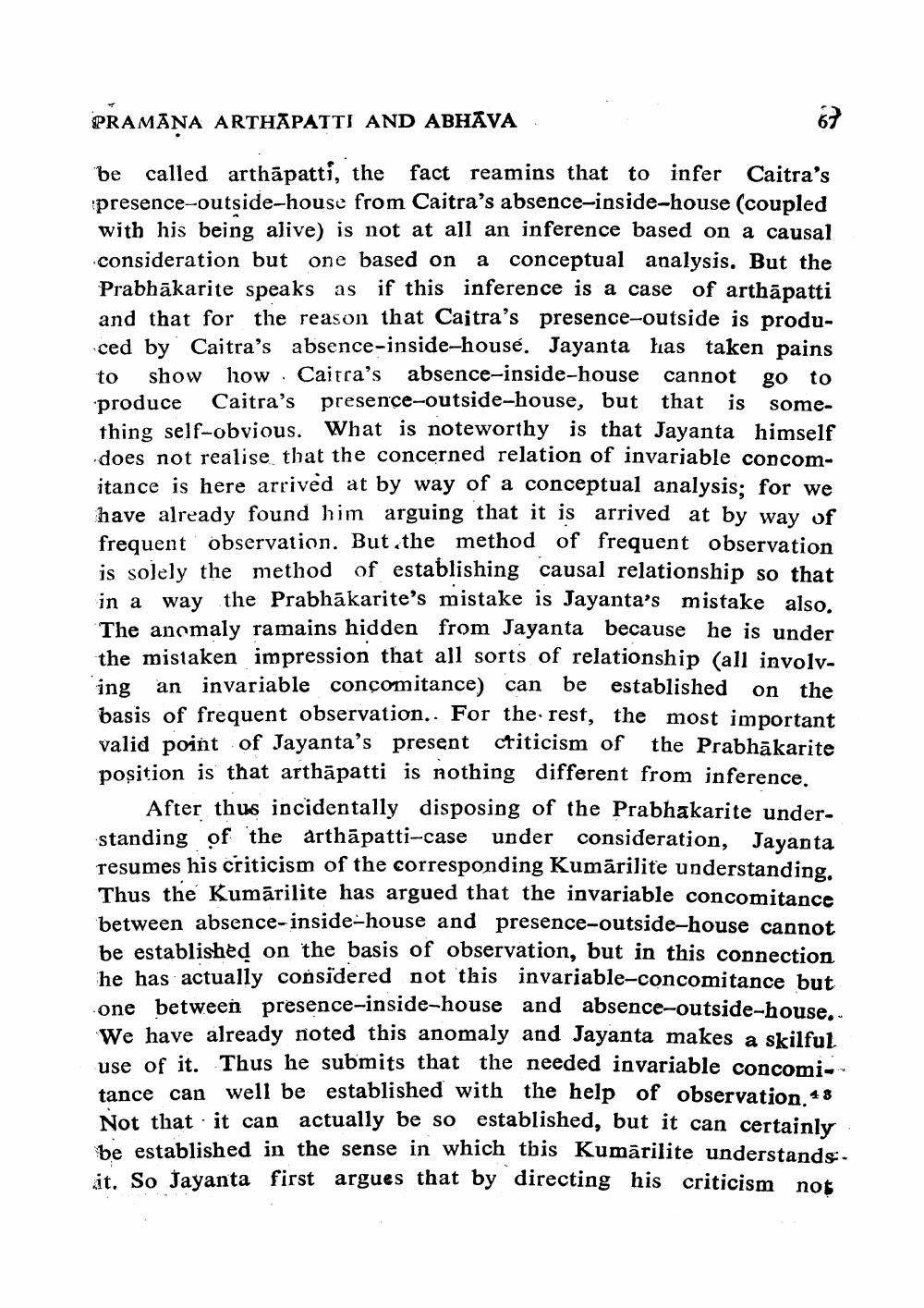________________
PRAMĀNA ARTHAPATTI AND ABHAVA
be called arthāpatti, the fact reamins that to infer Caitra's presence-outside-house from Caitra's absence-inside-house (coupled with his being alive) is not at all an inference based on a causal consideration but one based on a conceptual analysis. But the Prabhākarite speaks as if this inference is a case of arthāpatti and that for the reason that Cajtra's presence-outside is produced by Caitra's absence-inside-house. Jayanta has taken pains to show how. Caitra's absence-inside-house cannot go to produce Caitra's presence-outside-house, but that is something self-obvious. What is noteworthy is that Jayanta himself does not realise that the concerned relation of invariable concomitance is here arrived at by way of a conceptual analysis: for we have already found him arguing that it is arrived at by way of frequent observation. But the method of frequent observation is solely the method of establishing causal relationship so that in a way the Prabhākarite's mistake is Jayanta's mistake also. The anomaly ramains hidden from Jayanta because he is under the mistaken impression that all sorts of relationship (all involving an invariable concomitance) can be established on the basis of frequent observation.. For the rest, the most important valid point of Jayanta's present criticism of the Prabhākarite position is that arthāpatti is nothing different from inference.
After thus incidentally disposing of the Prabhakarite understanding of the arthāpatti-case under consideration, Jayanta resumes his criticism of the corresponding Kumārilite understanding. Thus the Kumārilite has argued that the invariable concomitance between absence-inside-house and presence-outside-house cannot be established on the basis of observation, but in this connection he has actually considered not this invariable-concomitance but one between presence-inside-house and absence-outside-house.. We have already noted this anomaly and Jayanta makes a skilful use of it. Thus he submits that the needed invariable concomitance can well be established with the help of observation. 48 Not that it can actually be so established, but it can certainly be established in the sense in which this Kumārilite understandsat. So Jayanta first argues that by directing his criticism not




